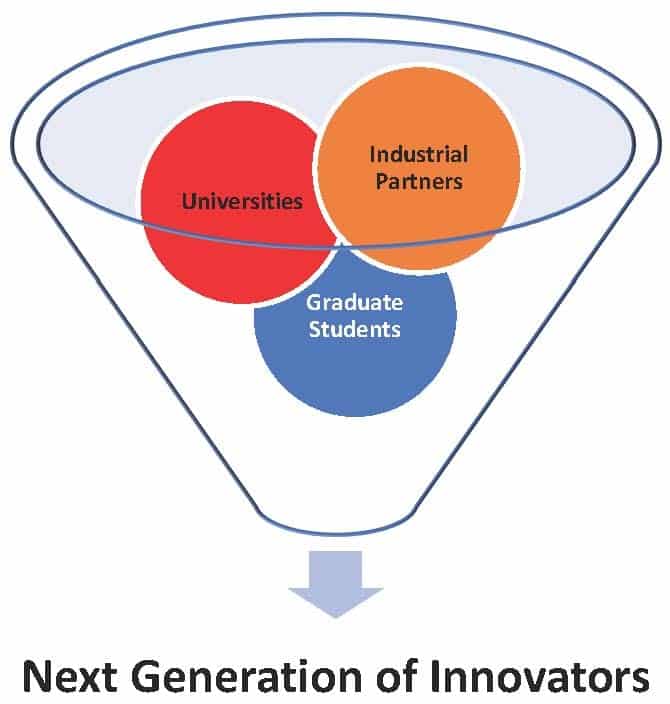By Victoria Scarborough, Ph.D., Materia Prima Ventures
I was recently invited to give a talk to a group of chemistry graduate students at a major southern university about developing a career in industry. They were extremely attentive and asked a lot of questions. I was amazed to realize they had very little exposure to industry and did not quite understand what it takes to work in a business environment. Most were being encouraged by their major professors to continue their career in academia. But several of them approached me later about pursuing jobs where they could contribute to product commercialization. Herein lies the opportunity for universities and businesses to work together and help each other grow the next generation of innovators.
Recruiting and maintaining good talent is a major concern for all businesses today. The paint and coatings industry especially needs skilled formulators to develop new raw materials and products, because the art of paint formulation is often learned on the job. Unfortunately, universities and industry work together like oil and water. They have vastly different missions, timetables, and key stakeholders. One does not understand the other very well, and bridgebuilding is onerous and often one-sided. Few professors have an entrepreneurial mindset, and companies have little patience for lengthy experimentation that never ends. In the middle are students learning the latest in technological advances who will need employment in the near future. So, what is needed to cultivate the innovation formulators of tomorrow?
1. Universities:
a. Universities could do a better job of working with industrial partners on behalf of their graduate students. Universities often have industrial liaisons who work to form partnerships for projects, in the hopes of monetary gain. It does not usually encompass a discussion about the students working on the project and how they might be hired at a later date. Let us help secure their future by including them in the proposal.
b. Universities can solicit a team of committed industry mentors who coach students and expose them to the business side of their work through regularly scheduled events.
2. Industry Partners:
a. Industry needs to partner more with their local universities to cultivate relationships with the student body and not just the university management. Why not sponsor a “take-your-local-university-graduate-student-to-work day”? Exposing students to an industrial setting for the first time will make a lasting impression, just as it does when you take your kids to work.
b. Many companies have summer internships to bring in students for small projects. It is time-consuming and a big commitment as training drains company resources. But it is an investment that will pay off later if the students are a good fit with your organization.
3. Graduate Students:
a. Look for industrial internship opportunities and go wherever they are located to get experience.
b. Use your local university resources to polish your resume into a professional looking document.
c. Find a mentor who is willing to guide you through the process of interviewing for a job.
d. Apply for every job opportunity until you find success. Never give up!

Dr. Victoria Scarborough is owner and principle advisor at Materia Prima Ventures; (vscarborough@matprimeve.com)
